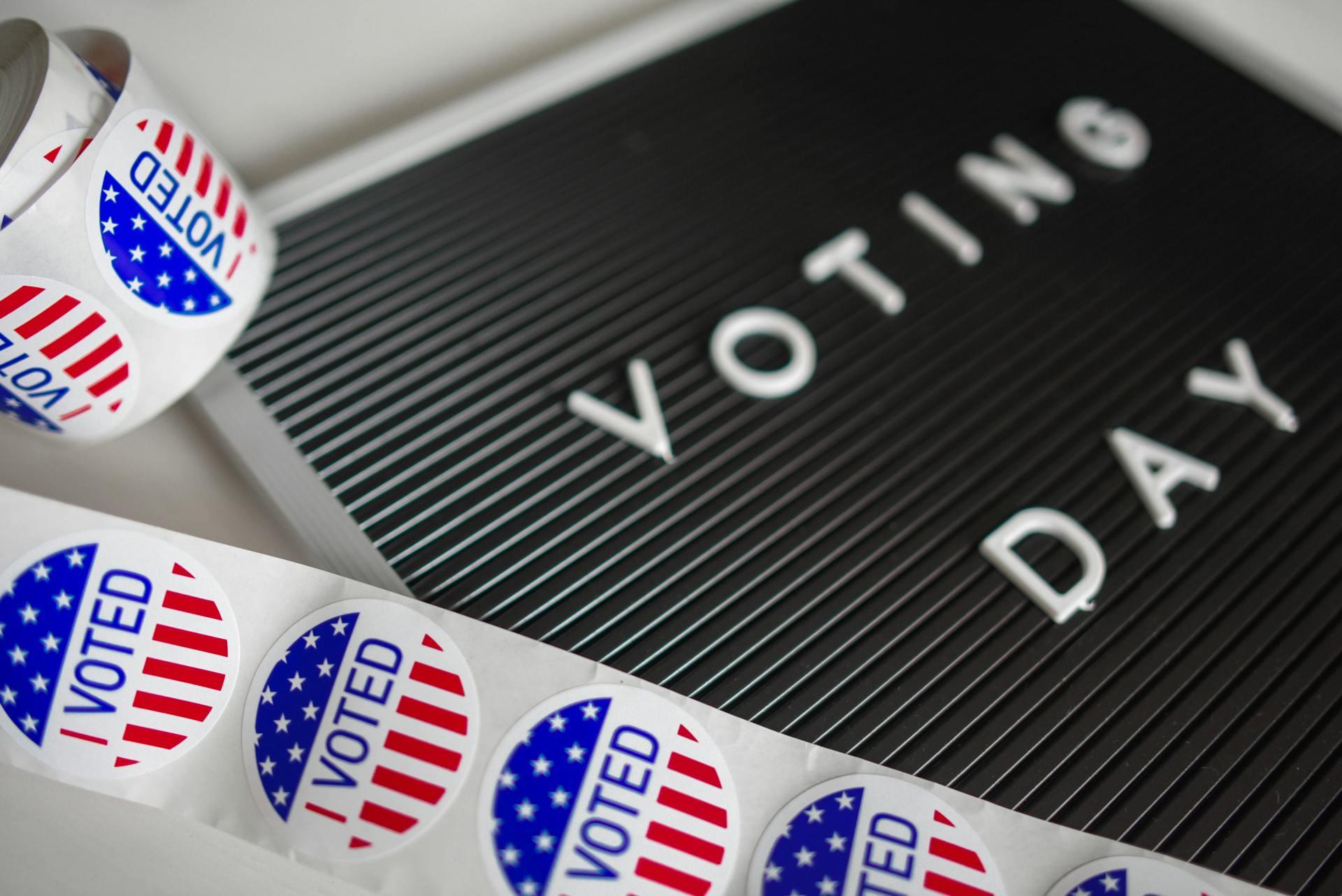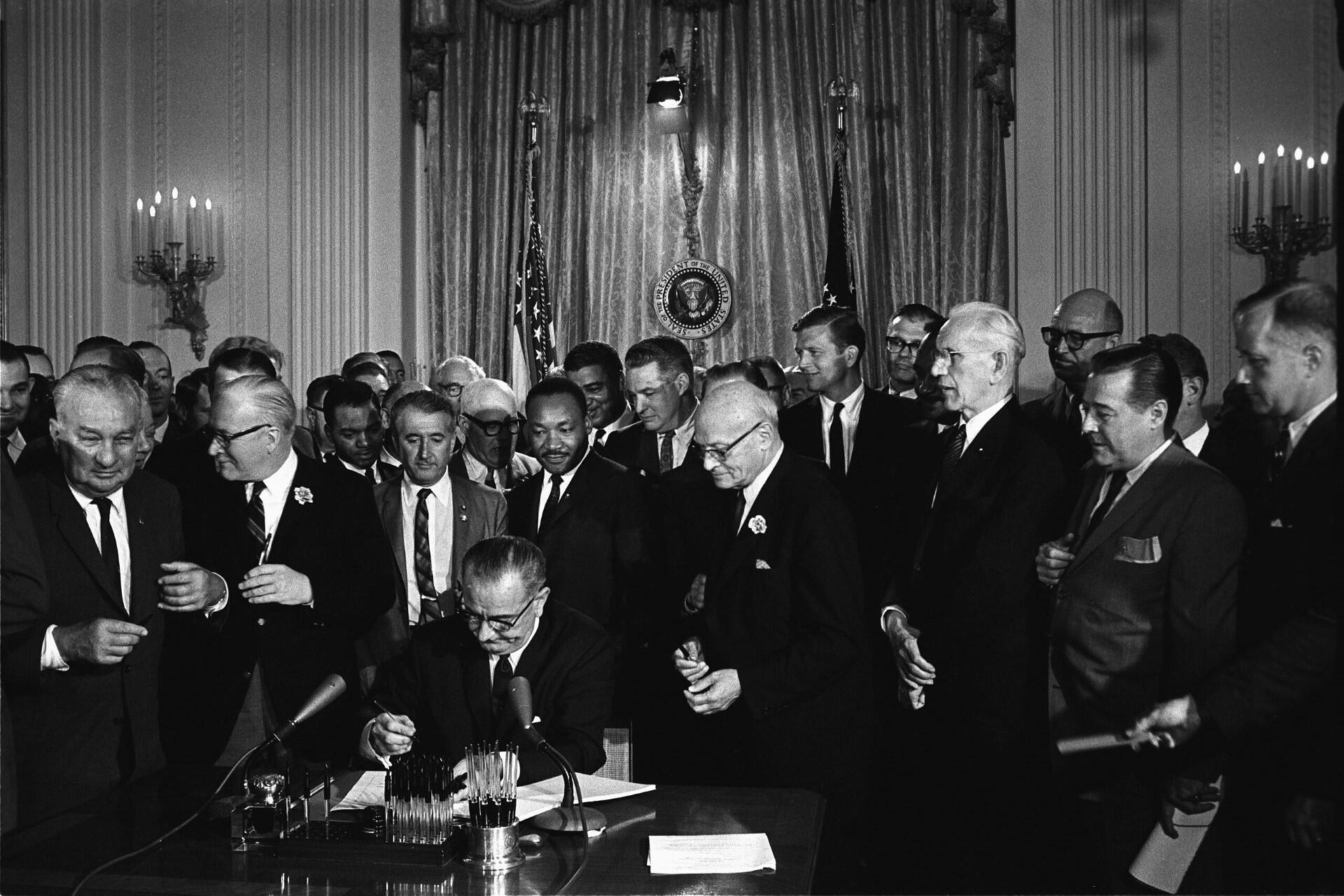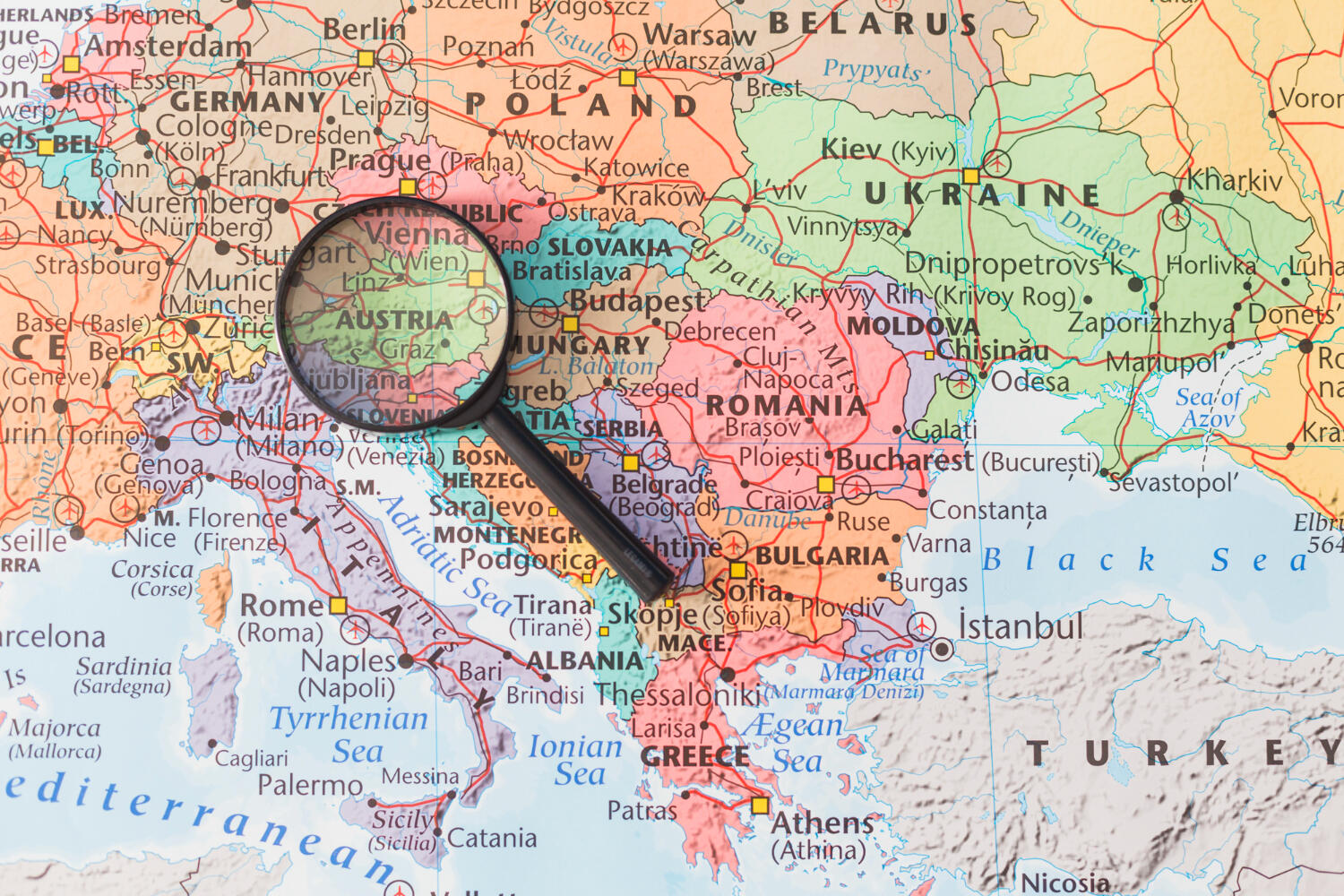Get ready for the Presidential election!
Voting is a cornerstone of democracy, allowing citizens to have a say in their government’s direction and leadership. In the United States, the process of voting, especially in presidential elections, can seem complex, but understanding it is key to making informed decisions. As the 2024 presidential election approaches, here’s what you need to know about the upcoming election, the standard election process, how to register, how to vote, and why voting matters.

What to Know About the Presidential Election 2024
Of the upcoming elections, the presidential election (aka general election) is the most anticipated nationwide. Learning about the presidential candidates 2024 is of critical importance so you can make an informed choice.
The 2024 Presidential Election will be held on Tuesday, November 5th. Elections are always held the first Tuesday after the first Monday in November every 4 years.
Presidential Election Timeline
Election Day is set for Tuesday, November 5, 2024, and it marks the culmination of months of campaigning, debates, and primaries. A range of candidates from both major political parties, as well as third-party candidates, are running, each with their own vision for the country’s future.
The most publicized day in presidential elections is the day when the nation votes, but there are actually many more steps in the voting process! Here’s a brief timeline of the 2024 election cycle.
January 15th - June 8th, 2024
Primary Elections
States and territories held their primaries and caucuses to determine which candidates from each party voters liked most
June 27th
1st Presidential Debate
Trump and Biden debated on stage
July 15th-18th
The Republican National Convention
RNC was where Trump was named the official Republican nominee
August 19th-22nd
Democratic National Convention
The DNC was where Kamala Harris was named the official Democratic nominee
September 10th
2nd Presidential Debate
Trump and Harris debated on stage
October 1st
Vice-Presidential Debate
VP-picks JD Vance and Tim Walz debate on stage
November 5th
General Election
Voters cast ballots for their choice of nominees for president (plus any local and state elections being held at the same time)
December 17th
Electoral College Votes
Electors cast their official votes
January 3rd, 2025
119th Congress Convenes
New Representatives and Senators chosen in the state elections are sworn in
January 6th
Congress Counts the Electoral Votes
Congress counts the votes, officially declaring the new president-elect
January 20th
Inauguration Day
The new president-elect and vice presidents-elect are sworn into office
The major candidates for the 2024 presidential election are Kamala Harris with Tim Walz and Donald Trump with JD Vance. Third-party candidates include Jill Stein, Cornel West, and Chase Oliver.
Get Informed!
The 2024 election is especially important because of the significant national and global challenges occurring. Voters must weigh issues like the economy, healthcare, climate change, immigration, and foreign policy, among others, when deciding which candidate to support. It’s also worth noting that midterm elections in 2022 set the stage for the balance of power in Congress, which will influence how the next president can govern.
Be sure to thoroughly research the candidates for president 2024 using nonpartisan or bipartisan sources whenever possible so you can get a clear view of their histories, policies, and platforms.
Some good sources to use include reliable news media like the Associated Press, PBS, Reuters, and websites like Bipartisan Policy Center, Ground News, and AllSides. You can even use resources like podcasts such as Breaking Points and Unbiased.

How Do Presidential Elections Work in the US?
Each country follows its own unique election procedures. The United States has an election procedure that can seem simple or complex depending on how you look at it.
Here are the basics of what you need to know about how presidential elections are conducted in the US.
Major Milestones in the Presidential Election
Presidential elections in the U.S. follow a structured process, with key events and steps leading up to Election Day. Understanding how it works will help you make sense of what’s happening in the lead-up to the 2024 election.
1. Primaries and Caucuses
What is the purpose of a primary election? Before the general election, each political party holds primary elections or caucuses in each state to select their nominee for president. The candidates who win the most delegates during this phase (generally) become their party's nominee.
2. National Conventions
After the primaries, both the Democratic and Republican parties hold national conventions where the official nominee is chosen, and the party’s platform is outlined.
3. General Election
Voters select who they want to be president, influencing the Electoral College vote. The popular vote in each state (generally) determines which candidate wins that state’s electoral votes.
4. Electoral College
Each state is allocated a certain number of electors based on its population, and most states have a "winner-takes-all" system where the candidate who wins the popular vote in that state receives all of its electoral votes. To win the presidency, a candidate must receive at least 270 electoral votes, which is a majority of 538 total electoral votes.
One presidential term is 4 years, and a person may only be elected as president twice in their lifetime.
Other Important Information About Elections
While the presidential election is the most publicized election in the entire country, there are actually many different elections happening all the time all over the States.
To know when and where all the different elections are taking place, you’ll need to stay informed in your state and local community.
You can use a resource like Ballotpedia to learn more about this information.
Many states are having special elections to fill unexpectedly empty seats that occur between regular elections throughout the year. Additionally, many states hold different state elections at the same time as the presidential election, putting them all on the same ballot. Representative, Selectman, and Senate votes, etc can be taken during locality or state-specific election days, or as part of the November election.
In US elections, a ballot refers to the slip of paper (or sometimes the digital equivalent) where a voter marks their selections to be counted as an official vote as part of an election proceeding.

How to Register to Vote
To vote in the 2024 presidential election, you must first be registered. The process is simple, but it’s important to follow your state’s guidelines, as registration requirements can vary.
Eligibility
In general, there are 3 requirements to vote in the United States: You must be a U.S. citizen, at least 18 years old by Election Day, and meet your state’s residency requirements.
How to Register
You can register to vote online, by mail, or in person, depending on your state. Many states have made it easy to register online through state government websites or national platforms like Vote.org. If you prefer to register by mail, you can download the National Mail Voter Registration Form, fill it out, and send it to your state’s election office. Additionally, you can often register in person at the DMV, your local election office, or other designated locations.
If you’ve recently moved, you may need to update all your other information like vehicle registration, driver’s license, and registered address first.
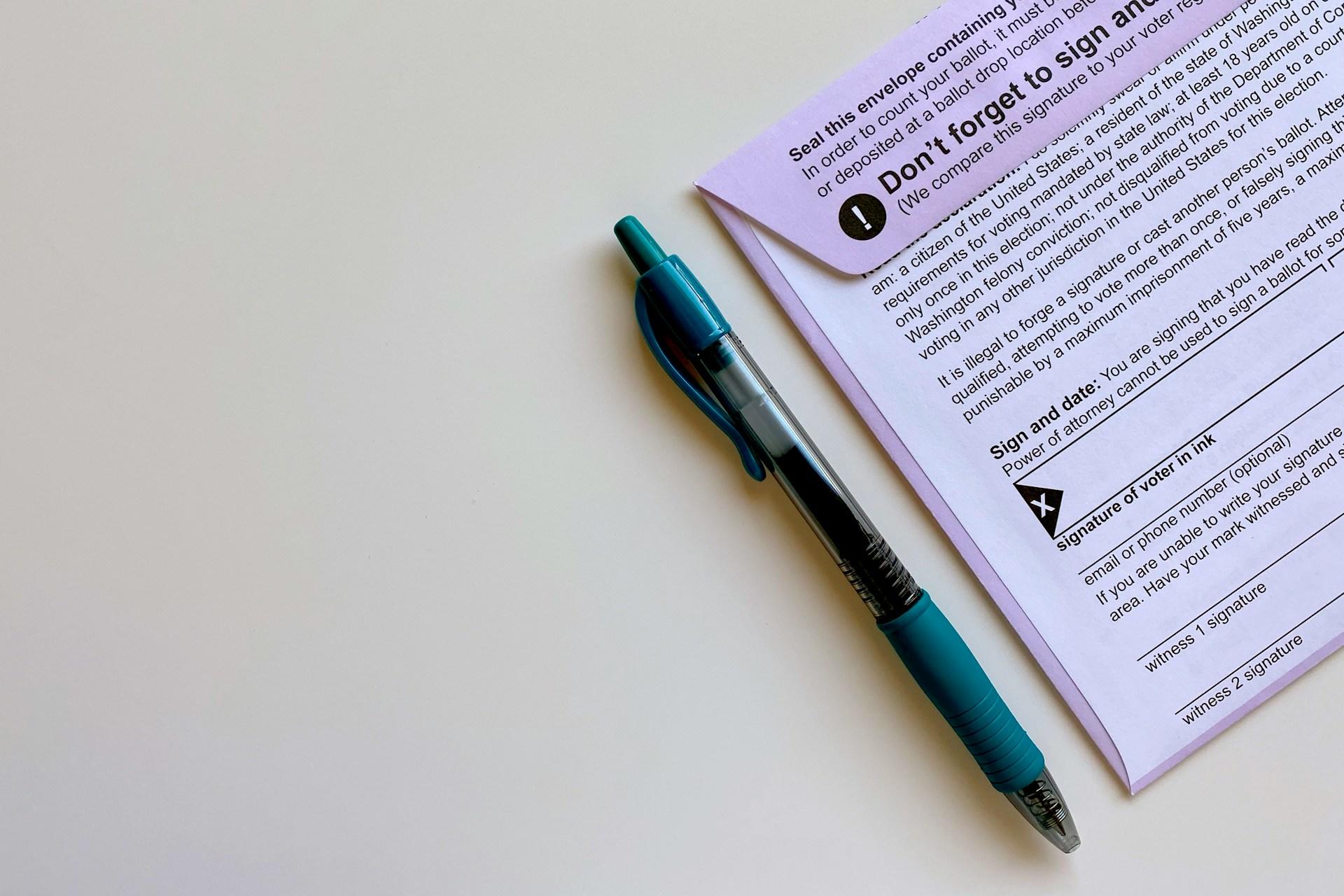
Deadlines
Be aware of your state’s registration deadlines, as some states require you to register weeks before Election Day. Other states offer same-day registration, allowing you to register and vote on the same day.
Check Your Status
If you’re unsure whether you’re registered or need to update your information, you can check your registration status online through your state’s election website or other nonpartisan resources.
US citizens must be at least 18 years old by election day to participate in voting.
How to Vote
Making it to the ballot box to cast your vote is a relatively simple procedure.
When you register to vote, you should receive information from your town or state telling you where your local polling place is as well as the dates and times of elections. This is the location you will need to go to in order to vote.
If you do not know where your polling place is, you can search on your town or state’s website to see if they have that information readily available (you may be able to search by your residential address). You can also call, communicate by mail, or go to a government office in your town to find out more information.
Each state may have different requirements about which documents to bring with you to the voting center, so be sure to check that as well.

How to Vote If You Can’t Be There in Person
If you’re traveling or otherwise can’t physically get to your designated polling place, you can still participate in voting in most states.
Check your specific state’s guidelines to apply in advance for early voting, a mail-in ballot, or absentee voting. Depending on your situation and what state you live in, your options will vary.
Who Cannot Vote?
Generally, the only thing that may bar someone from voting in the presidential election (provided they meet the big 3 criteria) are certain felony charges. In many local and state elections, felons may still be able to vote, even if they can’t vote for president.
If you arrive at the polling place and are told that your name is not on the register, ask for a provisional ballot. The elections officials will investigate if you should have been allowed to vote and if yes, they will count your vote.
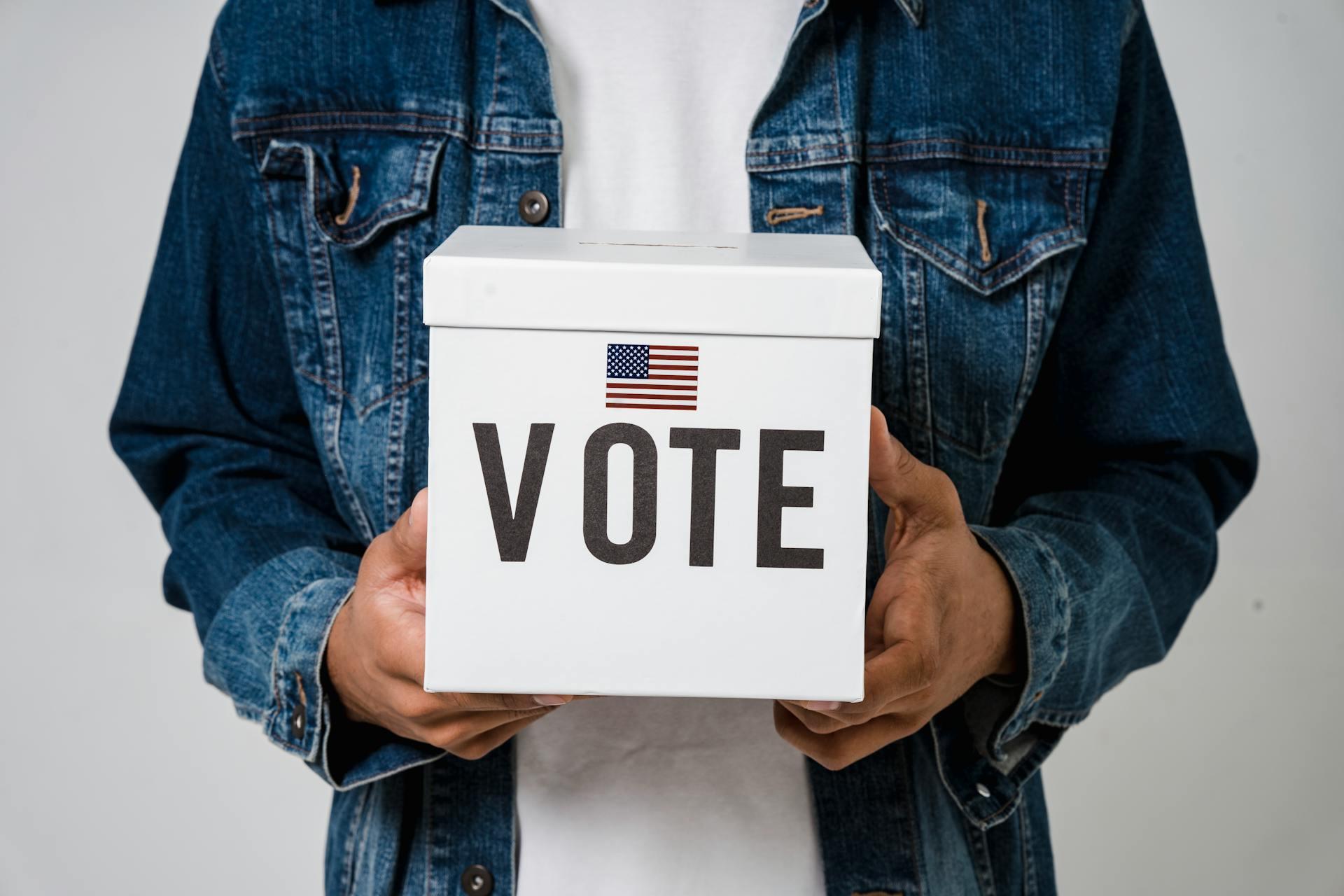
Why Is It Important to Vote in Elections?
Voting is one of the most direct ways to participate in a democratic (or representational republican) process. Your vote matters at every level—local, state, and federal—and contributes to shaping policies that impact your life and the lives of all other Americans. Here are just 3 reasons why it is important to vote:
- Civic Responsibility: Voting is a fundamental right, but it’s also a civic duty. By voting, you’re taking part in the decision-making process that defines your community, state, and country.
- Representation: One of the biggest benefits of voting is choosing leaders you think will lead your community well. Many people align with one of the political parties in the US that most reflects their personal values.
- Impact on Future Generations: The choices made today will shape the future for generations to come. Voting ensures that the policies you care about—whether environmental protections, civil rights, or economic fairness—are prioritized by elected leaders, setting up for the future.
The ballot is stronger than the bullet.
Abraham Lincoln
Voting Is a Hard-Won Right
The importance of voting is compounded when you remember voting rights have gone through many changes since 1776.
Voting was an inherent right given immediately to wealthy, white, landowning men at the conception of this country. Other groups of people had to fight long and hard with their peers and the government to secure that right through voting amendments as well.
If you belong to a group that is non-white and non-male, it’s symbolically very important that you vote. People worked for decades to make progress and finally be able to secure voting rights for these other groups so they could participate in government.
That’s not to say that white men aren’t affirming the importance of this democratic process when they vote, too! Every person who participates in this basic form of political involvement is helping to affirm that the United States is a country that must listen to its people.
The 26th Amendment, ratified in 1971, lowered the age to vote from 21 to 18.
The American voting system is both a right and a responsibility. By understanding how presidential elections work, registering to vote, and participating in the election process, you contribute to keeping the spirit of America alive. Your voice matters, and your vote is the way to make it heard. As the 2024 presidential election approaches, now is the time to ensure you’re informed, registered, and ready to participate in shaping the future of the country.
References
- 2024 Presidential Election Calendar - 270toWin. (n.d.). In 270toWin.com. https://www.270towin.com/2024-presidential-election-calendar/
- Fox, G. (2022). 10+ Independent Online News Sources and Why America Needs More. In HubPages. https://discover.hubpages.com/literature/A-Real-Need-for-the-Real-News
- Know Your Rights. (n.d.). In American Civil Liberties Union. https://www.aclu.org/know-your-rights/voting-rights
- Special elections to the 118th United States Congress (2023-2024). (n.d.). Ballotpedia. https://ballotpedia.org/Special_elections_to_the_118th_United_States_Congress_(2023-2024)
- State legislative elections, 2024. (n.d.). In Ballotpedia. https://ballotpedia.org/State_legislative_elections,_2024
- Voter registration deadlines. (n.d.). In USAGov. https://www.usa.gov/voter-registration-deadlines
Summarize with AI:

